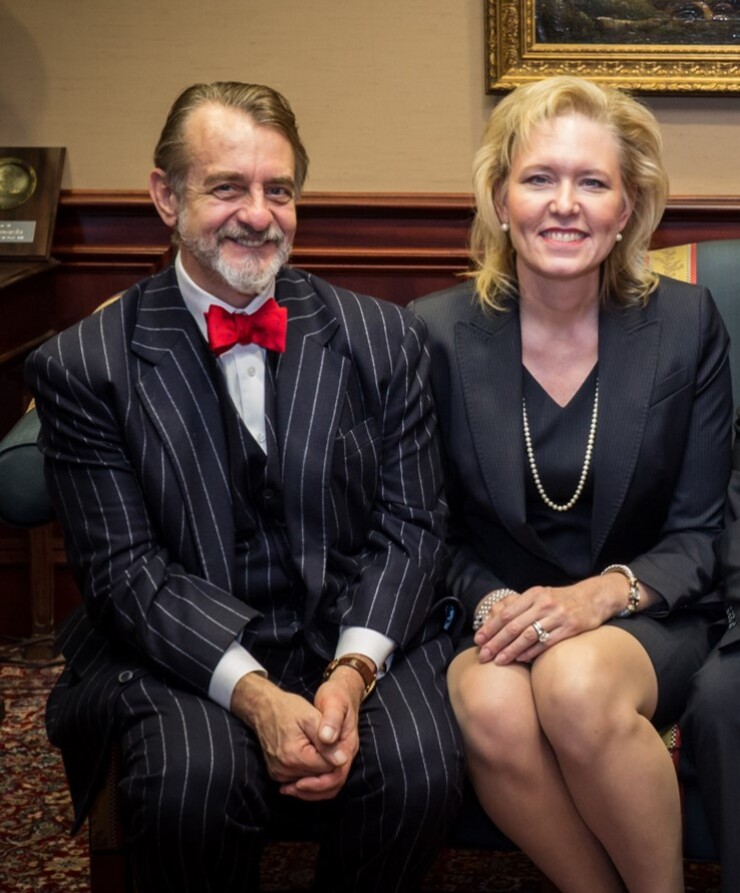In its first fee-only crackdown after emerging from a protracted legal battle over the issue, the CFP Board punished six CFPs for alleged false advertising — while leaving unpunished hundreds of others at large firms who did the same thing.
Two of the six are Jeffrey and Kimberly Camarda, the husband-and-wife planners from Fleming Island, Florida, who sued the board in 2013 in a failed attempt to stop the board from publicly sanctioning them. This month the board issued public letters of sanction to the six CFPs.
The board says it forbids CFPs from advertising their services as fee-only — a widely accepted shorthand for fiduciary service — if they receive commissions in any form.

Fee-only disciplinary actions by the board are noteworthy, in part because the board itself provided a platform for hundreds of fee-only misrepresentations to the public on its own website, according to
The issue of who is and is not fee-only is a perennially important one in the advisory industry, especially amid regulatory moves to mandate fiduciary treatment of clients. Many regulatory cases against planners involve those who placed their own enrichment, often through high and/or hidden commissions on investment product sales, over the financial well-being of their clients.
When it comes to enforcing its much-debated fee-only rules, the board has been dogged for years by criticism that it brings its disciplinary hammer down disproportionately on advisors at smaller firms, often with fewer means to defend themselves, while leaving advisors at the largest firms untouched.
486 TRANSGRESSIONS
The board derives its approximately $30 million in revenue from $325 annual fees levied on CFPs, slated to jump to $355 on Nov. 1. The board’s steady growth over the years comes in part from adding CFPs from large firms, including wirehouses, insurance firms and banks.
The board announced public sanctions last week against six CFPs who allegedly advertised themselves as fee-only while also taking commissions. They are the first public fee-only disciplinary actions taken by the board since it began battling the Camardas over the issue five years ago.
Two of the new sanctions stem from alleged infractions in 2011, and another is from 2013.
That year, a Financial Planning investigation found the board was allowing 486 wirehouse advisors to call themselves fee-only on its site, in open violation of its rules. Wirehouse advisors often face extreme pressure to place their clients in high-commission investments, yet many have sought to portray themselves as fee-only for marketing purposes to attract new clients.
While purportedly forbidding CFPs from misrepresenting their services to the public as fee-only – and punishing some for this offense — the board was essentially acting as a conduit for hundreds of misrepresentations in a section of its site where consumers can search for CFPs who work in their region.
A subsequent investigation by The Wall Street Journal found 661 advisors from large commission firms doing the same thing.
DOUBLE STANDARD
Hours after Financial Planning's investigation was published Sept. 19, 2013, the
"There seems to be a pretty clear double standard," one of the advisors sanctioned this month said of the board's disciplinary process. The advisor declined to be identified out of fear of further repercussions from the board. Other advisors targeted in the board's new crackdown either could not be reached or declined to comment.
Although two of the advisors sanctioned this week are affiliated with large firms – Donald Heatherly is an employee of Northern Trust in Wheaton, Illinois, and Daniel L. Chamberlin works as an independent advisor with Securities America – at least three of the others are from smaller ones. In addition to the Camardas, the other sanctioned advisors were Grant Blindbury of FMB Wealth Management in Westlake Village, California, and David C. Valente of Casner & Edwards in Boston.
While Blindbury says he agreed to his settlement with the board, he says his firm took a single $8,500 commission from the sale of an annuity for a client and then refunded that amount back to her.
By contrast, many wirehouse advisors base their business models on the routine and ongoing sale of high-commission products. To date, the board has not publicly disciplined a single wirehouse advisor for a fee-only transgression.
The board declined to answer any questions about the fee-only sanctions.
Ron Rhoades, a longtime planner who’s now head of the financial planning program at Western Kentucky University, says, "I was not a fan of the lack of a sanction in the instance of the 500-plus wirehouse advisers who used the term fee-only inappropriately on the CFP Board’s advisor listing website …. At a minimum, a letter of reprimand was appropriate."
In suing the board five years ago, the Camardas claimed they derived a de minimus amount of commissions from sales of insurance policies and should be allowed to use the term fee-only.
The board touted the victory as proof of its role as an ethical standard-bearer in the planning field.
"As a result of the court's decision," the board's chairman at the time, Richard Rojeck, said, "the public will be protected because CFP professionals will continue to be held accountable when their peers have found that they deserve to be sanctioned for their conduct."
However, two experts in nonprofit governance said the judge's decision pointed up
Jeffrey Camarda, who along with his wife dropped his CFP certification last year, said he was not surprised by the board's decision to proceed with the long-promised sanction. "We find the downside of association with CFP Board far more onerous than any benefits we might receive," Camarda said.





